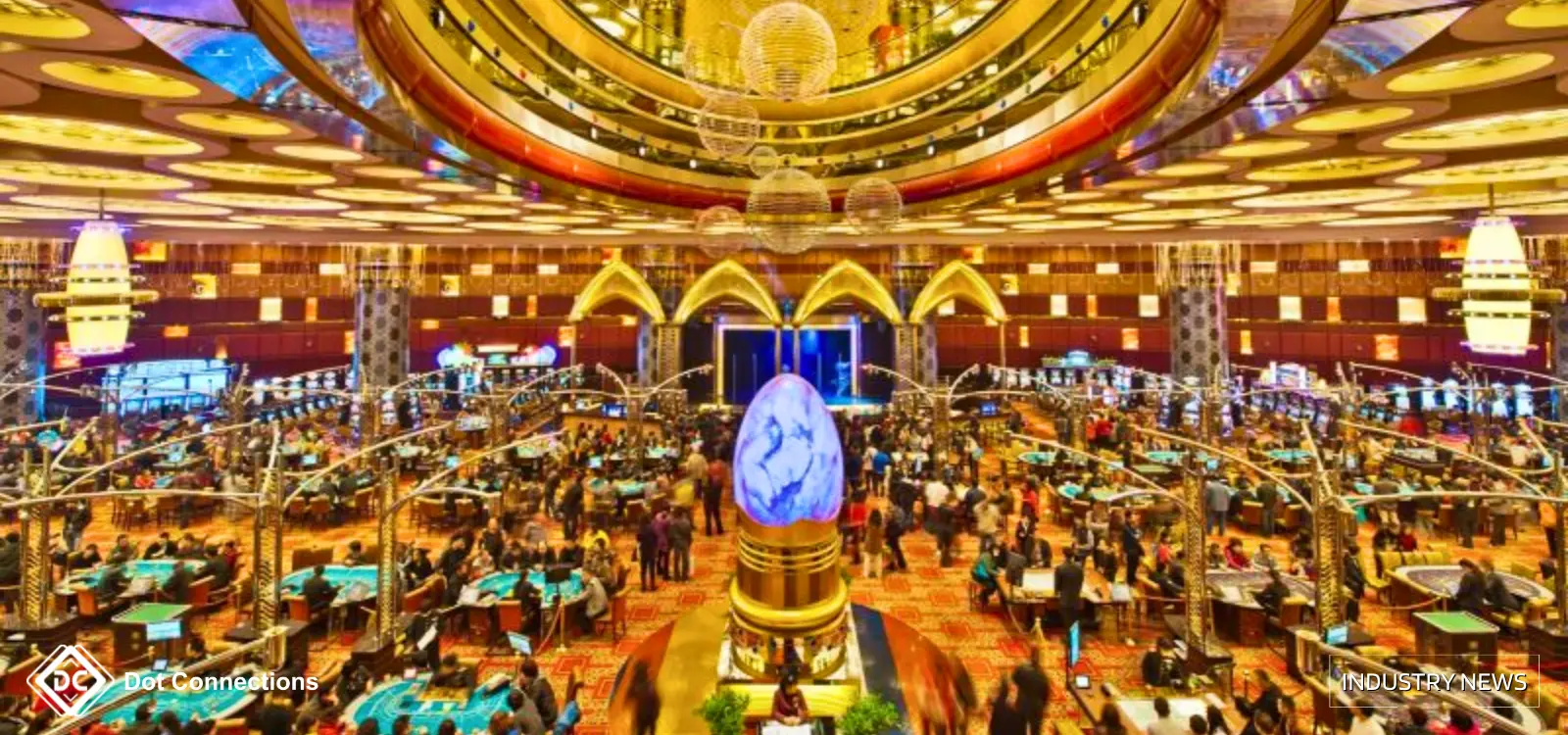
Industry update • Macau • Published: January 12, 2026
Macau 2025 GGR $30.9B — Q4 Event Costs Squeeze Margins
Macau closed 2025 with a powerful top-line recovery — roughly $30.9 billion in gross gaming revenue and a record 40.06 million visitor arrivals — and most operators rewarded frontline staff with one-month bonuses. Yet the fourth quarter exposed an important caveat: major event-related spending and portfolio adjustments compressed operating margins even as revenue climbed.
Table of Contents
Key takeaways
- Top-line rebound: Macau recorded roughly $30.9B in GGR and 40.06M visitor arrivals in 2025.
- Employee payouts: Most concessionaires issued one-month bonuses to frontline/non-management staff.
- Q4 margin pressure: Large event spending (NBA China Games, 15th National Games) plus costs from satellite-casino closures reduced operating leverage.
- Operator dynamics: Analysts flagged Galaxy and MGM China as likely Q4 share gainers; SJM faced integration costs (~4,000 absorbed staff); Sands grew revenue but saw margin pressure.
- What to watch: Focus on adjusted EBITDA, event ROI and labour-integration costs — not just GGR or visitor counts.
Quick summary
Macau enjoyed its strongest post-pandemic year in 2025: near-$31B GGR and a record number of visitors. Those headline gains enabled operators to award bonuses to many frontline staff and signalled broad demand recovery. However, fourth-quarter results showed that significant event-linked spending and portfolio restructuring can erode margin gains. Analysts caution that headline GGR and visitor figures tell only part of the story — adjusted EBITDA and event ROI will determine which operators truly benefit in 2026.The numbers at a glance
- GGR (2025): ≈ $30.9 billion (up ~9% vs. 2024; ~36% vs. 2023).
- Visitors (2025): 40.06 million (surpassing 2019’s 39.41M).
- Staff bonuses: Majority of concessionaires announced one-month discretionary bonuses for most non-executive employees.
- Q4 context: Analysts estimated industry EBITDA growth for Q4, but flagged material margin pressure tied to event and restructuring costs. Sands’ Q4 EBITDA was cited at roughly US$616M with an expected margin decline (~1.9 percentage points) attributable to event spend. SJM’s consolidation of satellite properties led to absorption of ~4,000 staff, raising short-term costs.
Why Q4 looked different: event and restructuring drivers
Large, headline events create visible benefits — tourism spikes, package sales, retail lift and brand exposure — but they also carry substantial incremental expenses.
NBA China Games: promotion costs and hospitality packages
Promoted by Sands China at The Venetian Arena, the NBA preseason brought sponsorship, production, venue and promotional costs. Sands acted as promoter and rolled out NBA-branded retail and hospitality packages.
15th National Games: venue support and funding commitments
Multiple concessionaires provided venues and funding commitments for the multi-city event, increasing short-term operating outlays.
Satellite casino closures: SJM consolidation and staff integration
SJM’s consolidation of satellite properties led to one-off closure costs and higher payroll/operating expenses as satellite staff were integrated into core properties.
These items explain why operating leverage in Q4 did not fully reflect revenue growth: event and restructuring spend reduced adjusted EBITDA margins even while GGR increased.

Market share and operator positioning going into 2026
Galaxy Entertainment: events & hold benefit
Benefitted from a heavy events and concerts schedule and favourable hold rates, translating into estimated market-share gains.
MGM China: favorable hold at MGM Cotai
Saw a lift from beneficial hold at MGM Cotai, boosting its Q4 performance.
Sands China: share gain vs. margin pressure
Gained share quarter-on-quarter but faced margin pressure from NBA and other event spend.
SJM Holdings: satellite integration impact
Saw share compression amid satellite closures and associated costs.
The NBA’s return to Macau in October 2026 (scheduled preseason games with the Dallas Mavericks and Houston Rockets) signals that events will remain central to operators’ strategies — and to their cost bases.
What stakeholders should watch
Investors: adjusted EBITDA, margins, CAPEX
Focus on adjusted EBITDA, margin trends and management commentary around whether event spend is one-off or part of a recurring strategy. Capex and labour integration costs matter as much as GGR.
Operators: event monetisation & labour integration
Prioritise monetisation of event traffic (premium packages, F&B, retail, hospitality add-ons) and rigorous cost control on event production. Efficient integration of staff and properties following consolidation is critical.
Employees & local economy: bonuses vs. restructuring risk
Bonuses are a positive sign for workers and household income, but restructuring and property closures can cause short-term disruption for affected staff.
Conclusion
Macau’s 2025 recovery is real: record visitors and near-$31B GGR demonstrate restored demand. Yet Q4’s event-driven cost load underscores an essential discipline: strong top-line numbers must be paired with disciplined event ROI and margin management. For 2026, operators that convert headline traffic into sustainable, margin-accretive revenue — while controlling event and integration costs — will be best positioned to outperform.
At Dot Connections, we track policy shifts and disruptive trends shaping the iGaming and online entertainment landscape worldwide. From compliance challenges to new market entries, our team delivers the intelligence operators and providers need to stay competitive.
🌍 If you’re planning to expand into dynamic markets in Asia, Africa, or Europe, our experts are ready to support your journey.
Follow Dot Connections LinkedIn for regulatory updates, market analysis, and strategic guidance on the future of iGaming. Or Contact us here.












